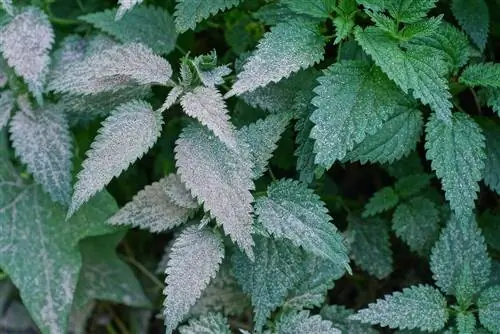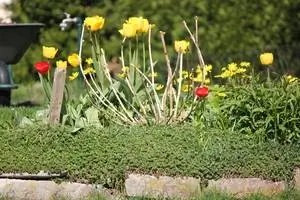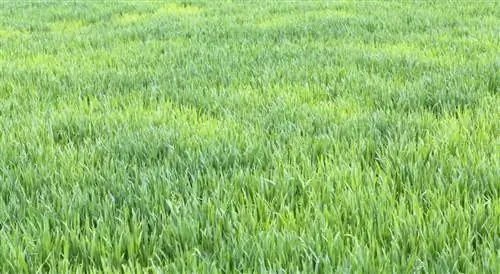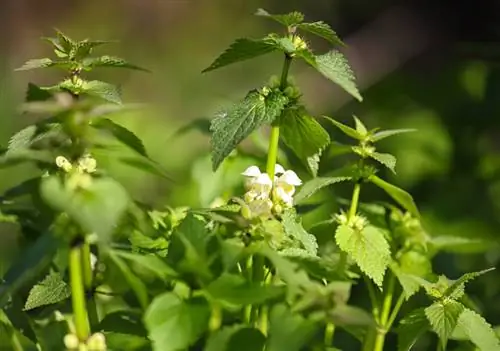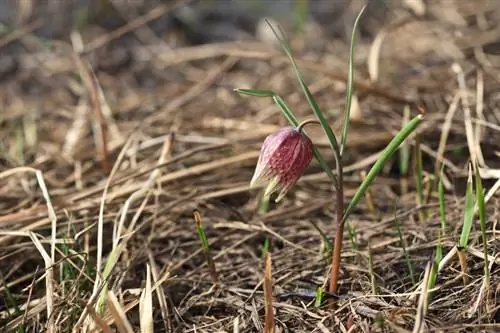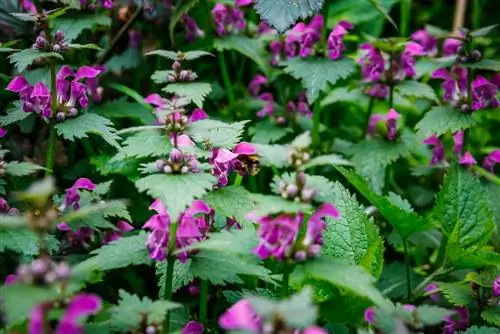- Author admin leonars@hobbygardeners.com.
- Public 2023-12-16 16:46.
- Last modified 2025-01-23 11:22.
Although the nettle is a particularly he althy plant, it is not welcome in well-kept gardens. The plant multiplies quickly and takes over the entire lawn within a very short time. Gentle agents such as ash are helpful for removal.
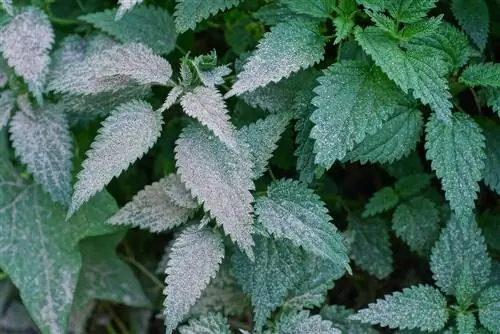
How do you use ash against nettle?
The ashes are spread liberallyon the nettles. The charcoal ash prevents the plant from sprouting again next year. This method is thorough and ensures immediate and widespread death of the nettle.
When should you use ash against nettle?
The use of charcoal ash to combat stinging nettles isrecommended in autumn. This prevents the plant from starting to grow in the spring. With the help of a scarifier, the growths can also be removed particularly thoroughly. This also pulls the roots of the nettle out of the ground. This method can be used as a supplement to ash treatment. However, scarifying the lawn is a very complex method of removing nettles. The regeneration of the lawn also takes a few weeks.
How often is ash used against nettle?
If you want to completely remove the annoying nettles from your garden, you should use the ash thoroughly andseveral times a year if necessary. The simple home remedy is highly recommended for combating nettle. Ash also works against mosses, root weeds and algae. However, the charcoal ash should not be spread on the meadow all year round, as this will put a strain on the lawn in the long term.
Does ash also help prevent nettles?
Ashes shouldonly be used to combatstinging nettles. If you want to prevent uncontrolled spread, spreading mulch is particularly advisable. A covering weed fleece also helps prevent weeds from sprouting. A particularly attractive option for preventing different types of nettles is to plant ground cover plants. Ivy and cranesbill are ideal for this and are also visual eye-catchers.
Tip
Ash and other home remedies for nettle
A particularly useful home remedy in the fight against nettles is hot water. This is poured onto the plants instead of ashes. After drying, you need to pull the dead weeds out of the soil. Finally, you should pour hot water into the holes in the ground again. This means that the last remaining roots are thoroughly combated. Nettle manure can be used as an effective alternative.

